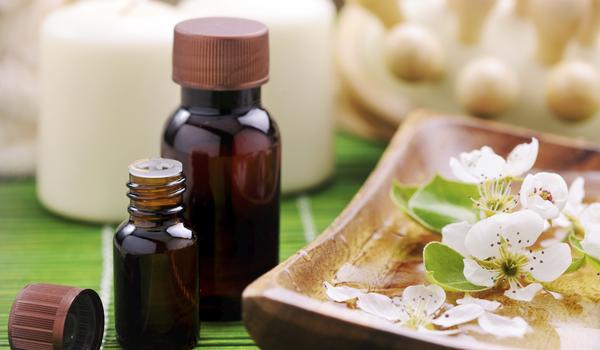Lift your mind, body, and spirit with aromatherapy

You must check with your doctor before you try aromatherapy.1–3 Aromatherapy is a complementary therapy that uses essential oils from plants to improve physical, spiritual, and emotional well-being.1
For thousands of years, healing practices in many cultures (including ancient China, India, and Egypt) have used fragrant plants.1 Essential oils were first extracted from these plants in the Middle Ages. Modern aromatherapy started in the 20th century, when the effects of essential oils were studied.1
The effects of aromatherapy are probably a combination of:2
- Physical
- The absorption of the oils into your body
- Emotional
- How the smell of the oils affects your mind and spirit
Aromatherapy may help relieve the following symptoms of your cancer or side effects of treatment:1–3
- Anxiety
- Stress
- Nausea
- Pain
- Tiredness
- Depression
- High blood pressure
The oils may be rubbed on your skin as part of a massage, or you breathe in the oil’s aroma.1–3 Try inhaling peppermint or ginger to relieve nausea caused by chemotherapy or radiation therapy.3 Have a lavender massage to relieve muscle tension, reduce anxiety, and help you sleep.2
If you want an aromatherapy massage, use a qualified therapist trained to work with people with cancer.2 It is best to find a therapist by contacting a professional aromatherapy organisation or a licenced massage therapist.2 Tell the aromatherapist you are receiving a cancer treatment and let them know what kind of treatment; some oils can make your skin more sensitive and likely to react badly.2
An aromatherapy session including massage may last up to 90 minutes.2,3 The therapist decides which oils to use depending on you, your health, and your symptoms.2,3
You can also use the oils at home in other ways:2
- Add 5–10 drops to a warm bath2,3
- Put 2–4 drops on a tissue or handkerchief and breathe in the aroma2,3
- Add a few drops to an oil burner or diffuser to fill a room with fragrance2,3
- Add 10–15 drops per 115 mL of water in a spray-bottle and spray around a room3
Used properly, essential oils are generally very safe.1,2 But you may have an allergic reaction or find that the oil irritates your skin, and some oils make your skin more sensitive to sunlight.1
Glossary